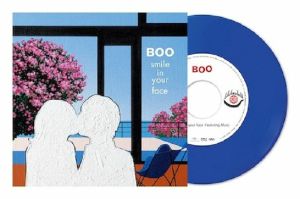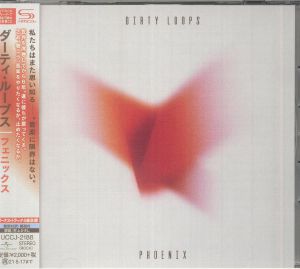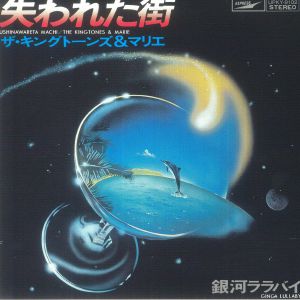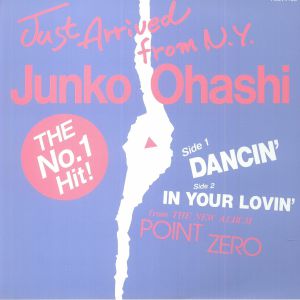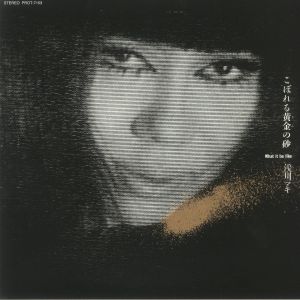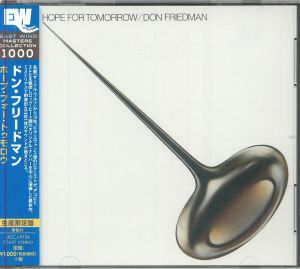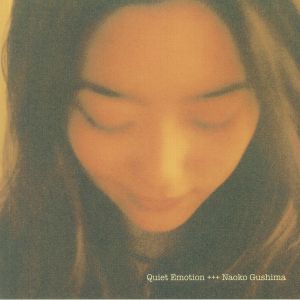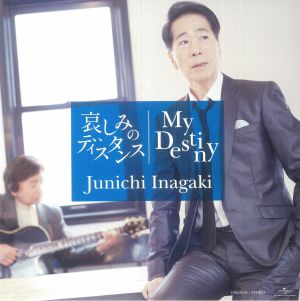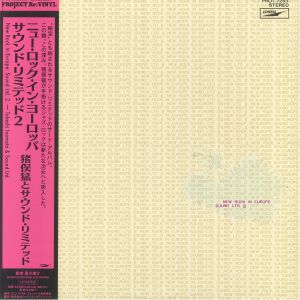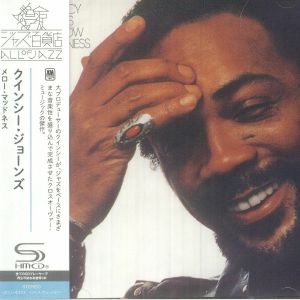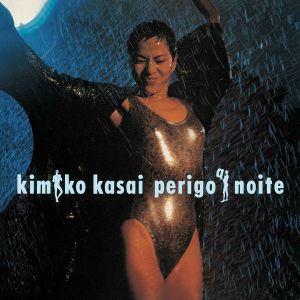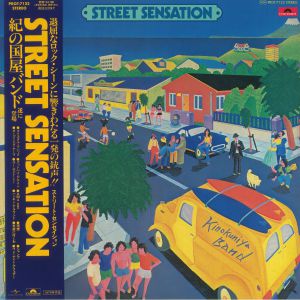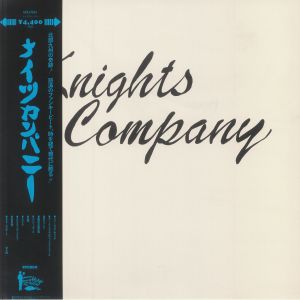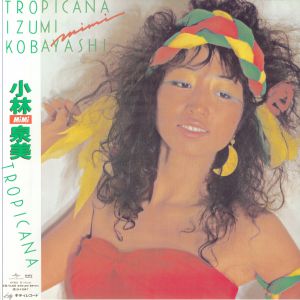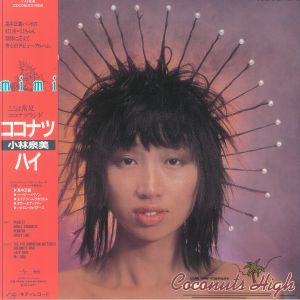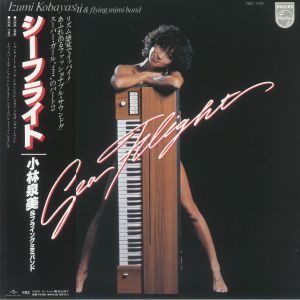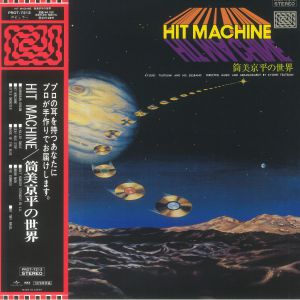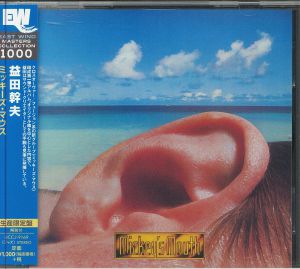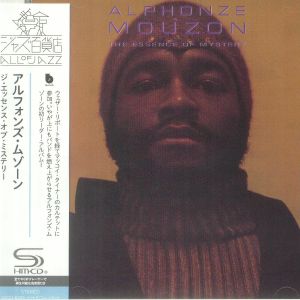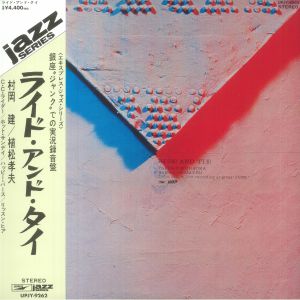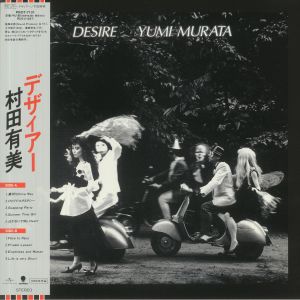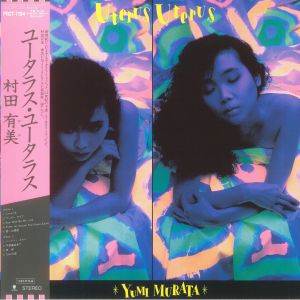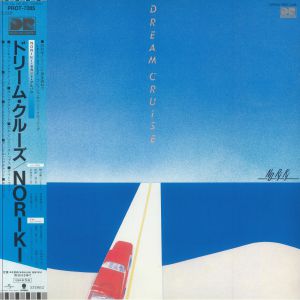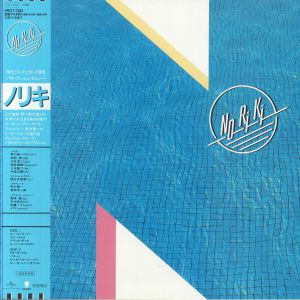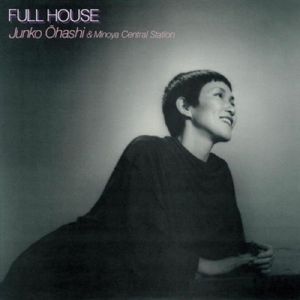Filter
Stock
Label
Featured
Release Title
Price
Tags
Back catalogue: All genres
Juno's full catalogue of All genres
Singles
Smile In Your Face (translucent deep blue vinyl 7")
Cat: PROT 7325. Rel: 24 Feb 25
Broken Beat/Nu Jazz/Nu Soul
Review: This release sees BOO showcasing their versatility, seamlessly blending elements of soul, jazz and electronica into a captivating sonic tapestry. 'Smile In Your Face' is a testament to the artist's ability to craft intricate soundscapes and infectious melodies, creating a listening experience that's both soothing and invigorating. The A-side features a collaboration with Muro, adding a touch of hip-hop flavour to the mix. On the flip, 'Smile In Your Face -Sunaga't Experience Remix-' takes the track into deeper, more atmospheric territory, courtesy of Sunaga t Experience. The production throughout is top-notch, with lush instrumentation and subtle electronic textures, all complementing BOO's soulful vocals.
… Read more in stock $23.46
Phoenix (Japanese Edition) (SHM-CD single with obi-strip)
Cat: UCCJ 2188. Rel: 24 Jan 23
Indie/Alternative
in stock $19.55
in stock $23.75
Review: Blissful boogie reissue from Junko Ohashi, whose 7-inch promo for 'Dancin' here functioned as the promo material for the 1983 album 'Point Zero'. Sounding just as rough, farty and raw as its original LP cut, the track is a perfect example of what Japan brought to disco - blending it largely with city pop - at the time. 'In Your Lovin', as it did on the original album, brings up the B-side with a downer-tempo funk beat, and a lyrical subject dealing with a romanticized, ideal lover.
… Read moreIntérprete: Juno Recommends Funk
in stock $21.23
Álbumes
in stock $41.08
in stock $9.78
Quiet Emotion (reissue) (limited translucent orange vinyl LP + insert)
Cat: PROT 7135. Rel: 22 Dec 21
Soul
in stock $40.22
in stock $21.51
Review: Japanese jazz drummer Takeshi Inomata is a little-spoken-about figure in the jazz-rock scene; The Japan Jazz All Stars alumn, We 3 trio leader and Rhythm Clinic Center founder has made well over 300 recordings in his career - this being the third in a year-long trilogy enthusiastically and successively released under the Sound Limited name alongside Kimio Mizutani and Shigenori Kamiya - amongst others - largely influenced by European musicians like Donovan and The Beatles. A notable and funny inclusion is 'London Bridge is Falling Down', a quite literal jazz groove cover interpolating the famous nursery rhyme. Opening track 'Something' is a cracking piece of relaxing jazz, nothing eye-popping, just some glossy, well-played, easy listening. 'Hurdy Gurdy Man' is a fast-paced funk cut with striking psychedelic guitars over a frantic flute line - the project showed Inomata's vision for a more approachable and instantly catchy jazz rock that still retained a lot of character and left, evidently, lots of room for experimentation.
… Read more in stock $43.31
in stock $15.37
Review: Japanese artist Kimiko Kasai is a revered vocalist who worked in the world of jazz throughout the eighties. Her unique style made her an in-demand collaborator who worked with the likes of Mal Waldron, Gil Evans and Herbie Hancock. She released a total of 23 albums on majors including EMI which is where, in 1987, she dropped this full-length of electro-pop Japanese works. Perigo A Noite features a collection of songs all written by the lady herself and many of them have an adult and exotic style that blends pop, funk and soul with her signature jazz.
… Read more in stock $43.31
in stock $41.08
Review: Originally self-produced and released in the mid-70s by members of Kitakyushu City University's Knights, a light music club, Knights Company was a rare two-disc set that came as an LP and EP and was sold in very limited quantities. Virtually unknown even among collectors, this album combines the high-energy soul influence of James Brown with a bluesy, melodic West Coast and AOR sound. Decades later, its appeal is undiminished as it captures the youthful spirit and talent of northern Kyushu's finest. This masterpiece has been revived as a compilation with high-quality remastering by 8ronix and a striking new design that makes it collectible all over again.
… Read more in stock $43.31
Review: Japanese keyboard player, singer-songwriter, music producer Mimi Izumi Kobayashi was born in Funabashi and went on to become a cult artist who released six albums, all of them in the eighties. Tropicana came in 1983 and is maybe the best known of lot and it now gets reissued on limited vinyl via Universal. It's a bright and vibrant blend of city pop, soul, disco and tropical sounds with nostalgic 80s drum sounds, hook vocals in English and Japanese and plenty of camp and catchy grooves. A real exotic wonder.
… Read more in stock $43.31
Review: Izumi Kobayashi's Coconuts High is a vibrant testament to her evolution as an artist. Reissued on vinyl, this album showcases Izumi's mastery in blending funk, Latin, and tropical influences into a cohesive and electrifying album. This piece features heavy hitters like Pecker, Freddie Washington, and the legendary Tower of Power horns, along with contributions from The Waters and guitarist Masayoshi Takanaka. Tracks like 'Palm St.' and 'Small Dynamite' pulsate with energy, while 'Lazy Love,' a reggae-infused reinterpretation of 'Crazy Love,' highlights her innovative spirit. Recorded in Los Angeles with a top-notch roster of musicians, Coconuts High encapsulates the essence of summer with its infectious grooves and tropical vibes. Each of the eight tracks is meticulously crafted, reflecting Izumi's growth as both a singer and composer. This reissue invites a new generation of listeners to fall in love with the sun-soaked rhythms and catchy melodies that make Coconuts High a timeless gem in Japanese funk and soul music.
… Read more in stock $44.15
in stock $44.70
in stock $41.63
in stock $9.78
in stock $15.37
Ride & Tie (remastered) (heavyweight vinyl LP + insert with obi-strip)
Cat: UPJY 9262. Rel: 13 May 23
Jazz
in stock $41.63
in stock $41.08
Review: Yumi Murata's Uterus Uterus is a jazz-pop classic from 1985. Yumi is a vocal coach and former singer who was active from the late 70s and through the 80s before opening her own Murata Yumi Vocal Training Room in 1991 and teaching ever since. This long-player was a later one out of the seven she released in all and is one of her most popular as it mixes up fusion, new wave, funk, pop and jazz across synth sounds. These are enjoyable and sophisticated sounds from this talented vocalist.
… Read more in stock $40.52
in stock $48.34
Noriki (reissue) (transluscent sky blue vinyl LP + insert with obi-strip)
Cat: PROT 7284. Rel: 23 Sep 24
Jazz
Review: Soichi Noriki's debut album Noriki (1983) showcases a polished blend of City Pop and jazz fusion, characterised by lush production and smooth, professional instrumentation. The album hits all the right notes for fans of the genre and does not lack the adventurous spirit found in Noriki's later esteemed work like Dream Cruise. Tracks like 'You Need Me' and 'Anyway' feature Yurie Kokubu's excellent vocals. 'Do What You Do' also provides a opportunity for her talent to shine. 'Black Duck' adds an edge with its distinct bass and brass sections, while 'Rag Box' stands out with its brisk tempo. Overall, the album excels in technical mastery, offering slick solos and pristine arrangements. Noriki is an enjoyable listen with many moments of excitement.
… Read more in stock $49.46
Full House (limited milky pink vinyl LP + insert with obi-strip)
Cat: PROT 7276. Rel: 02 Aug 24
Disco/Reediciones
Review: A lesser-known but electrifyingly slick city pop record (her fourth) by Junko Ohashi. 1979's Full House hears the Japanese singer's graceful but powerful contralto in full collaborative force, paired against the historic instrumental talents of her backing band, Minoya Central Station. Perhaps second only to Ohashi's timeless New York paean, Magical, Full House is yet another discographic dazzler that most likely contributed to the revival of the city pop genre after its retroactive but no less ironic recognition in the popular music sphere by the vaporwave subgenre, future funk. The mood throughout Full House is vital and joyful, suggesting something close to complete emotional fulfilment and idealistic glee on the singer's part - all part of the city pop's objective - its grand plan - to portray metropolitan life as an ultimate ideal.
… Read more in stock $45.82
in stock $20.40

 USD
USD






